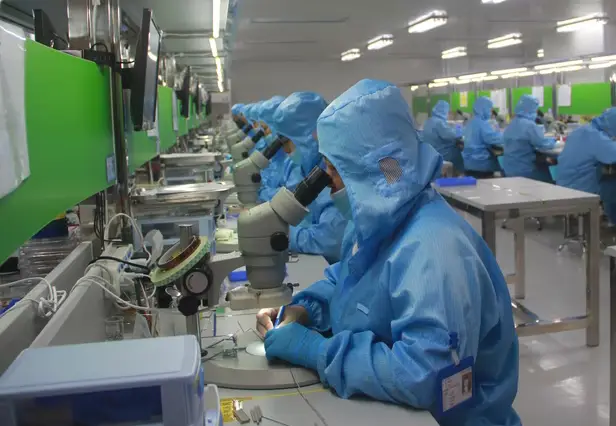After enjoying windfall profits from the Covid pandemic and associated global mass-vaccination pushes, Pfizer and Moderna are pursuing different business strategies going forward.
Pfizer has chosen to push its vaccine windfall into a mergers and acquisitions strategy, as it has gone on a year-long $26.4 billion buying spree, with its most recent pickup a $5.4 billion deal to purchase Global Blood Therapeutics.
Moderna meanwhile has focused on funneling money into its own drug pipeline, as well as stock buybacks.
The strategies have different benefits and costs. Pfizer’s strategy involves greater capital outlay, however the companies it purchases will tend to have products which can be judged more effectively, and may offer a more certain opportunity for established revenues. Moderna’s strategy involves more risk on projects which it must take through from start to completion itself, and which could prove to be failures. However if it succeeds, the profits would be far greater.
So far, in a possible recognition of the uncertainty surrounding biotechnology research projects, investors have preferred Pfizer’s safer path, as the company’s stock has risen 11.3% over the past 12 months. Meanwhile Moderna’s shares are down 62.2% over that period, all as the S&P 500 has dropped 5.2%.
Both companies are now watching as Covid-19 vaccine profits begin to decline. Analysts are predicting Covid vaccine sales will halve for both companies between 2022 and 2023. Demand is already dropping, forcing lesser vaccine makers like Novavax to dramatically reduce revenue guidance for 2022.
Declining vaccine sales aside, both companies are facing vastly different challenges going forward.
Modern now must show that its mRNA platform can rapidly produce a variety of treatments. So far all it has produced is a single vaccine. The ability to insert a temporarily active gene into the body to control the behavior of cells holds enormous promise, but it is a promise that is yet to be realized as broadly as the company will need it to be. And there may be unforeseen hurdles along the way.
Pfizer, meanwhile is looking at a series of patent expirations which threaten to sap profits across a range of products as its exclusive licenses are lost.
Pfizer has chosen to undertake its M&A strategy, as a way of creating a solid foundation of profits to make up for what will be lost to the patent expirations. As part of its strategy, Pfizer has promised investors it will add $25 billion to its 2030 revenue.
So far, Pfizer has begun its acquisitions with a $525 million deal closed in June to acquire Reviral, a maker of antiviral therapies. It also acquired Biohaven Pharmaceutical holding (BHVN) for $11.6 billion. And Pfizer also completed its $5.4 billion deal to purchase Global Blood Therapeutics
Pfizer believes it will see yearly revenue increase by $10.5 billion, just from those three acquisitions. Analysts say to meet its promised goal it will need to acquire companies with another $14.5 billion in annual revenue, and it will have roughly $24.2 billion to spend on them.
Even before Pfizer took on its M&A strategy officially, it had begun buying up promising biotechs using its Covid profits. In November of 2021, it picked up Trillium Therapeutics for $2.2 billion, and the purchased Arena Pharmaceuticals for $6.7 billion.
As it was doing that, it still managed to hoard $23.9 billion in cash and quickly liquidatable investments as of April 3rd. At the same time it has paid out $4.5 billion in dividends and purchased back $2 billion in stock in the first half of the year. Meanwhile it spent $5.1 billion on its own research and development pipeline during the same period.
Moderna meanwhile has been more cautious. Moderna CEO Stéphane Bancel said in an interview, “Investors don’t want us to do something crazy.”
As of the end of June, Moderna had $18.1 billion in cash on hand and cash equivalents. In the first half of the year it had spent $1.3 billion on research and development. In the second quarter, it launched a new $3 billion share buyback program, spent another $1.3 billion on share buybacks it was already performing, and had another $1 billion share buyback capacity left over from yet another program.
In the interview, Bancel noted of investors, “They want us to create value. So we are very happy when we tell them look, we’re returning cash to shareholders, because in the last quarter we didn’t find anything to do. We don’t want to do a big deal for the sake of doing a big deal.”
Bancel noted the company currently has a very promising pipeline, including four programs in Phase 3 trials, and three programs in Phase 2 trials.
Bancel asked, “Why would we, at this stage in the game, want to do something else that looks shiny, when we’re so close to our potentially amazing assets?”
While investors would seem to prefer Pfizer’s approach, they are not entirely cool to Moderna’s strategy. Although Moderna’s stock has taken a beating, it has gained 22% since June.

